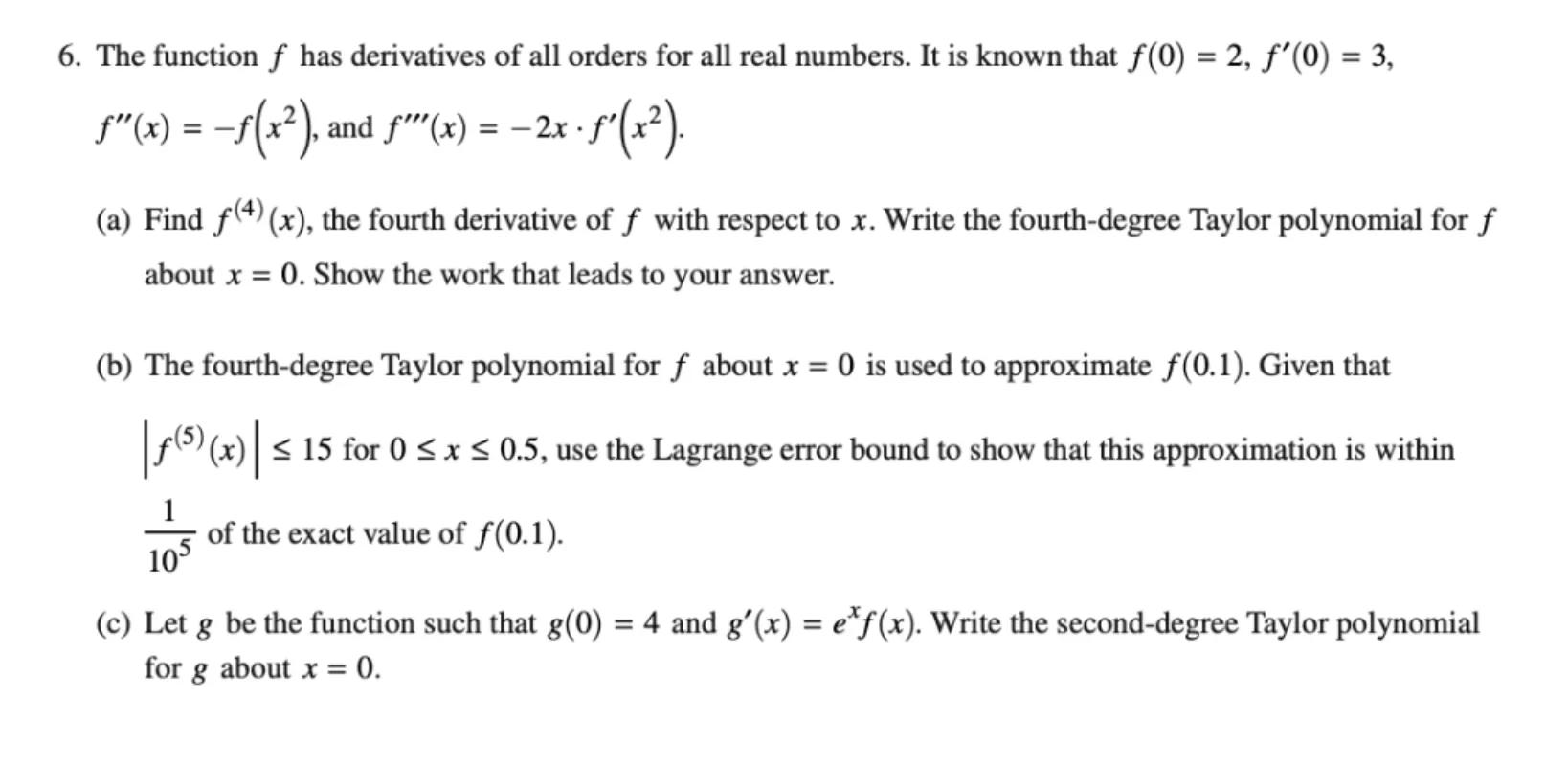
Sia
solve all three questions
6. The function has derivatives of all orders for all real numbers. It is known that , , and .
(a) Find , the fourth derivative of with respect to . Write the fourth-degree Taylor polynomial for about . Show the work that leads to your answer.
(b) The fourth-degree Taylor polynomial for about is used to approximate . Given that for , use the Lagrange error bound to show that this approximation is within of the exact value of .
(c) Let be the function such that and . Write the second-degree Taylor polynomial for about .

Answer from Sia
Posted almost 2 years ago
Solution by Steps
step 1
Given , we need to find
step 2
Differentiate to find :
step 3
Differentiate to find :
step 4
Evaluate at :
step 5
The fourth-degree Taylor polynomial for about is
step 6
Substitute the known values:
Part (b)
step 1
The Lagrange error bound for the Taylor polynomial is given by , where is the maximum value of on the interval
step 2
Given for , we use
step 3
For and , the error bound is
step 4
Therefore, the approximation is within of the exact value of
Part (c)
step 1
Given and , we need to find the second-degree Taylor polynomial for about
step 2
The Taylor polynomial is
step 3
Evaluate
step 4
Differentiate to find :
step 5
Evaluate
step 6
Substitute the known values:
Answer
Part (a): , Taylor polynomial:
Part (b): The approximation is within of the exact value of .
Part (c): Second-degree Taylor polynomial for :
Key Concept
Taylor Polynomial and Lagrange Error Bound
Explanation
The Taylor polynomial provides an approximation of a function around a point, and the Lagrange error bound gives an estimate of the error in this approximation
Not the question you are looking for? Ask here!
Enter question by text
Enter question by image
Unlock Smarter Learning with AskSia Super!
Join Super, our all-in-one AI solution that can greatly improve your learning efficiency.
30% higher accuracy than GPT-4o
Entire learning journey support
The most student-friendly features
Study Other Question
